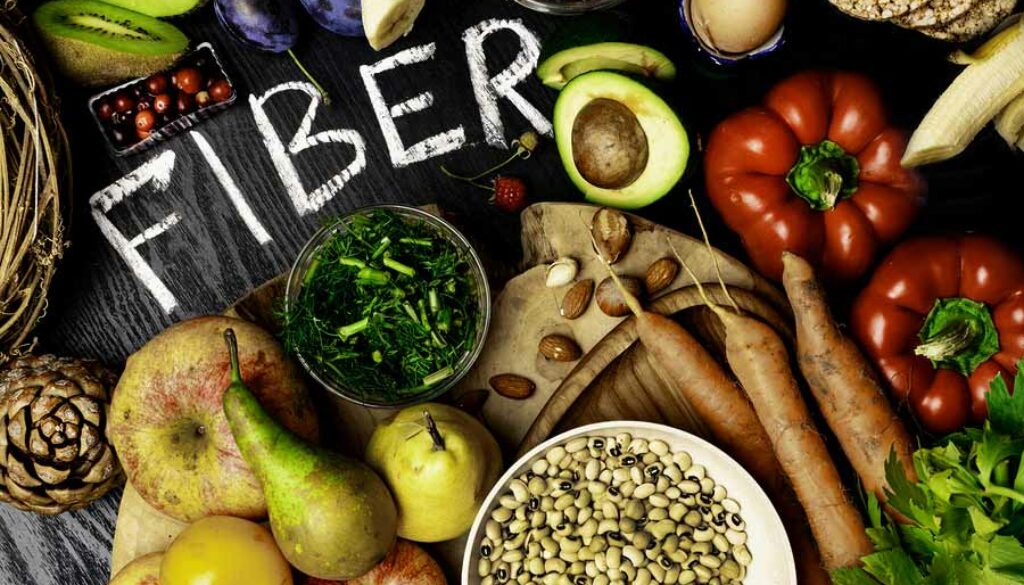Increase Fiber to Decrease Cholesterol
The CDC says 36% of Americans have high cholesterol. They also report that only 10% of Americans eat enough vegetables and fruits. These foods are big contributors of fiber in our diet and fiber helps to lower levels of blood cholesterol. Guess what that means? Yes, you guessed it. Americans don’t get nearly enough fiber in their diet!
Fiber helps to lower cholesterol in 3 ways.
HOW DOES FIBER LOWER CHOLESTEROL?
- Grabs on to fats and cholesterol in the small intestines so that it’s excreted instead of absorbed into the bloodstream.
- Reduces the amount of bile salts reabsorbed from the intestine. The body then needs to make more bile salts and uses cholesterol to do this.
- Slows digestion, which slows how fast blood sugar rises after eating. High blood sugar can cause more triglycerides to be formed, which can cause more cholesterol to be formed.
Two Types of Fiber: Soluble & Insoluble
There are two types of fiber: soluble and insoluble. While both are important for your health, soluble fiber is the one that helps to lower blood cholesterol levels. It dissolves in water to form a gel, which moves slowly through the intestines “grabbing” up fat, dietary cholesterol, bile salts, and sugar to be excreted. Once excreted, these are no longer available to build more cholesterol.
Our bodies build 80% of the cholesterol we contain, and fiber helps to remove too many building blocks. Then the cholesterol that does get made has to go do its jobs (like making bile salts, hormones, and strong cell structures) instead of hanging out in our bloodstream and getting deposited in our arteries. This reduces the risk of heart attack and stroke.
The average American’s fiber intake is less than 15 grams per day; this is considered a “low fiber diet” and is only recommend to individuals who have specific gastrointestinal issues. Women need to aim for 25 grams of fiber per day, while men need 38 grams. It’s important to increase fiber gradually and to drink plenty of water to avoid stomach troubles.
ARE FIBER SUPPLEMENTS GOOD FOR YOU?
While fiber supplements can be helpful in some situations, they don’t provide all the fiber we need. Let’s not discount the other benefits we get from eating real foods rich in fiber: they’re also rich in vitamins, minerals, and antioxidants, while being low in saturated fats, trans fats, and refined sugar. Use the list below to start including more of the best high-fiber foods.
Foods High in Soluble Fiber
- Oats*
- Beans / Lentils
- Barley*
- Avocado
- Broccoli
- Brussels sprouts
- Berries
- Apples / Pears
- Sweet potatoes
- Flax seed (ground)
*contain beta-glucan, a soluble fiber particularly good for lowering cholesterol.
If you need help with making these foods delicious, come see me, Nicole Matala, for ideas and recipes!




